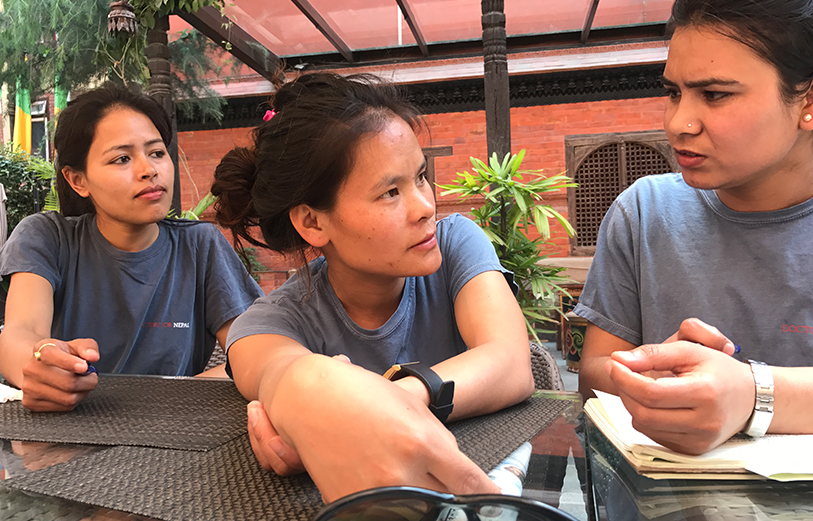Dr Gerda Pohl’s explanation of how PHASE’s nurses are trained
PHASE ANMs are almost all from very remote areas originally, and go through a competitive selection process in order to be recruited.
They work in very isolated communities and deliver an invaluable service there, where people would often not even have access to very basic health care. PHASE ANMS take great pride in the service they deliver and the difference they make. They treat all types of health problems, from accidents to chronic diseases, and they promote preventive services and education people about common health problems and their treatment and prevention.
All of them have shown a commitment to working in rural areas, and all of them could contribute significantly to the health service in these rural areas. Because they have had the experience of how hard life is in their working communities and how basic health care can make a huge difference to people’s lives, they are most likely to continue working in such areas. Kalika Thakuri has worked in Bajura, which in a recent statistic was the district with the lowest Human Development Index in Nepal with hardly any road access and unreliable air connections; Binita Rai worked in Melchham (Humla district), a mountain community 3 days walk from the nearest road or air access, and Apsara Jirel worked in Sridibas and Keraunja, both very remote communities of Gorkha district, 2-3 days walk from the nearest road. They were selected for the scholarship through a competitive process, which took into account their length of service in PHASE, performance, family background and commitment to working in rural areas after their nursing course.
L-R: Kalika, Binita, Dr Meena


